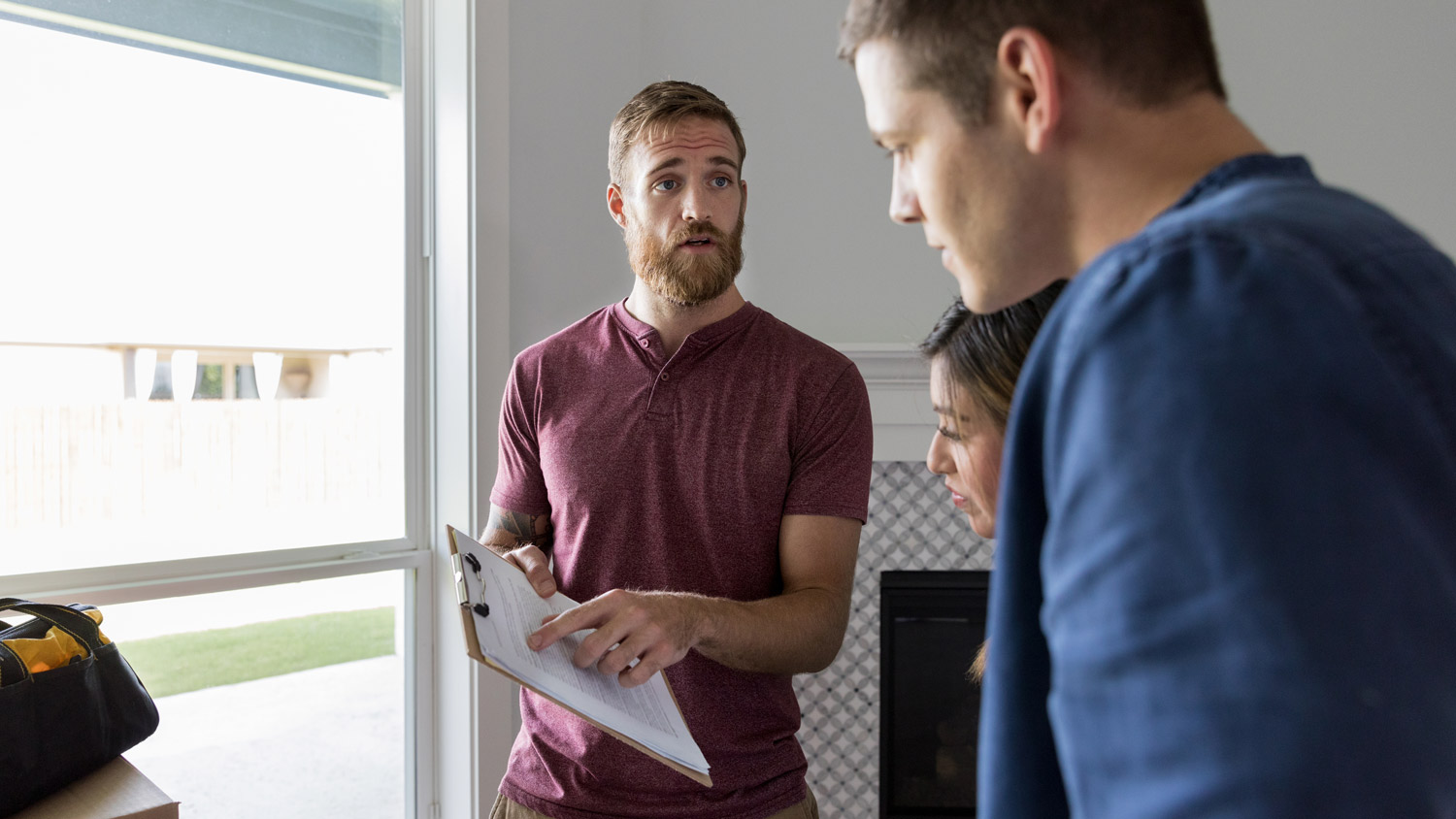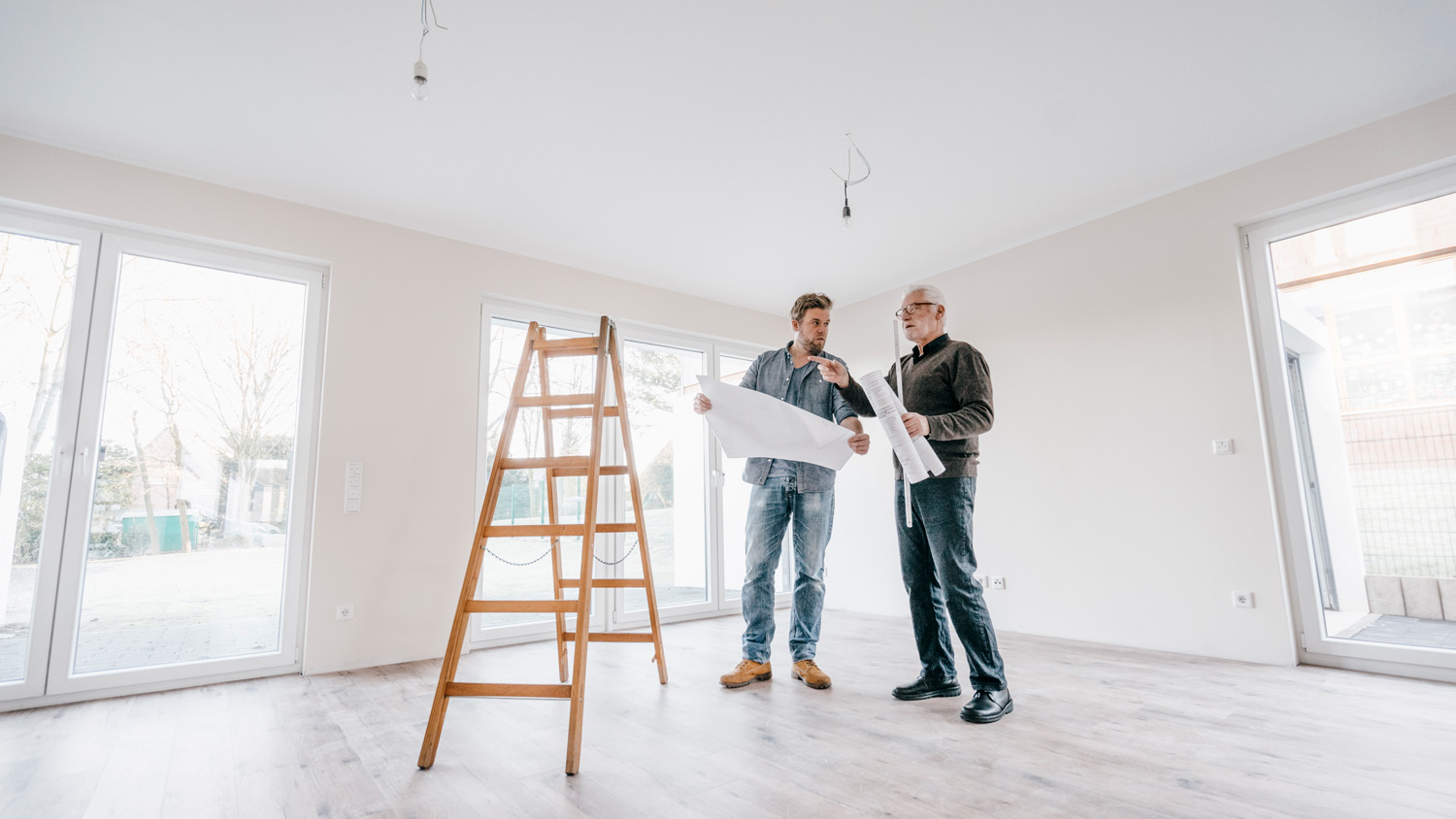
If you’re buying a home, having an inspection offers reassurance that it’s in good condition. How much a home inspection costs varies depending on the home's size, age, condition, and location.
What to expect from a home inspection—and how to hire a reputable inspector


When you hire a home inspector, you’re trusting your biggest asset to a stranger. Though it’s always a smart move to have a home inspection, you’ll want to properly vet the inspector before hiring. Get tips for hiring a great home inspector and learn potential home inspection scams to avoid below.
You typically hire a home inspector as a contingency after the seller accepts your offer on their home—and ideally before you get too emotionally attached. But that doesn’t have to be the only time.
Here are a few other times you might choose to have a home inspection:
1. When you’re the one selling a home, and you want to know what issues buyers might encounter, so you can fix them first. You want the buyer's inspection to go well.
2. When you’ve lived somewhere for a while, and want a home inspector to check out your house—even though you don’t plan on moving.
3. When you’ve done improvements and pulled permits, and now the city has to check your work.
These scenarios can all be stressful. You want to know that a qualified, honest, and thorough person is inspecting your home. Plus, it pays to be aware of common home inspection scams before this process begins. For example, when someone claiming to be with the city stops by to inspect a home project, you want to know they are legit.
Here’s what you need to know.
If you don’t have a home inspector (and who does?), your real estate agent will probably have a company they like to recommend. Be careful, though, since it’s crucial to find a neutral home inspector.
An inspector who is a friend to the agent could overlook some things to ensure the sale goes through. Avoid this inspection scam by finding your own home inspector.
The inspector shouldn’t offer to fix things for you either. It’s a conflict of interest for them to both give you a list of potential problems and offer contractor services to take care of them for you. Some states even have rules in place that say a home inspector can’t work on a house they inspect within a certain time period.
Legitimate inspectors also won’t accept payment from both buyer and seller. They work for you and only you.
Ask friends or family who bought homes recently for home inspector recommendations. You can also read online reviews to find a couple you like, then give them a call.
One thing to watch out for is people without credentials claiming to be home inspectors. To avoid that scam, here are some questions to ask your home inspector:
Are you licensed and certified? Each state has its own requirements.
Do you belong to any professional organizations like The International Association of Certified Home Inspectors (InterNACHI) or the American Society of Home Inspectors (ASHI)?
How long will the inspection take? Can I be there?
What kind of report will I get?
What is and isn’t included in the inspection?
Do you carry errors and omissions insurance?
How long have you been doing this? How many homes have you inspected?
The home inspection should take a couple hours and you should be able to walk along with the inspector. In fact, they can be a wealth of information, so it’s worth clearing your afternoon to be there and ask questions. Consider it a red flag if the home inspector tells you not to come.

No one wants to buy a home, pay for a home inspection, then have something expensive—that wasn’t mentioned in the home inspection report—go wrong.
Sometimes an item wasn’t flagged in the inspection report because there was no visible evidence of a problem at the time of the inspection.
Other times, the surprise defect was something that wasn’t included in the home inspection service. It’s not a scam, but home inspectors can only report on what they see. They are not trained in the trades and won’t necessarily recognize hidden plumbing problems, for example.
Inspectors also don’t walk on the roof or rip open walls to look for potential problems—sellers don’t appreciate that.
Expect these common home inspection exclusions:
Sewer or gas lines
Wiring
Plumbing
Evidence of pests
Landscaping, fences, pools, or docks
Roof leaks
The best way to make sure you aren’t left with an unpleasant surprise is to ask what items are not included in the inspection and what the inspector is not responsible for. These items are commonly spelled out under "scope, limitations and exclusions" in the contract.
Sometimes your report will come with an explanation of these items and inspection conditions. Never skip this section when reading your report. When you sign a home inspection contract, make sure you take the time to read it.
Talk to your home inspector. If you’re concerned about something on the exclusion list, ask! They might look at it for an additional fee or they may refer you to a specialist to get you the information you want.
You don't usually need to hire specialist inspectors unless you have a specific concern.

Inspectors are human and make mistakes sometimes. Common misses are fireplaces and roof leaks. If you have reason to believe the inspector made a mistake, reach out to them directly. Going through your real estate agent or any other third party can increase the likelihood that something gets misinterpreted. Most inspectors want to handle a problem quickly and will come out and take a look at the item in question.
If there is no doubt that a home inspector made a mistake, most will refund you the cost of your home inspection. Know how disputes get handled before you sign the contract.
If you are not satisfied with your inspection or cannot resolve a dispute, the agency that licenses home inspectors in your area can tell you how to proceed. If your state does not license home inspectors, you can also often get help from your local Better Business Bureau or Chamber of Commerce.
Additionally, you can see if your inspector is a member of any national professional organizations, such as InterNACHI or ASHI. There are codes of conduct a member of these organizations must adhere to during conflict resolutions.
From average costs to expert advice, get all the answers you need to get your job done.

If you’re buying a home, having an inspection offers reassurance that it’s in good condition. How much a home inspection costs varies depending on the home's size, age, condition, and location.

An attic inspection can confirm structural components, insulation, and home systems are all in order. Learn about attic inspection costs and what to know.

Drone roof inspection costs vary depending on the roof’s size, complexity, and material. Use this guide to budget for a drone roof inspection.

A home insurance inspection is a common part of the insurance process. Learn why your insurance company wants to inspect your house and what to expect.

Knowing when to walk away after a home inspection can save you time, frustration, and money. Learn about home inspection red flags to watch out for.

If you need to have a home you’re buying inspected, make sure you know who should attend the home inspection and why you should be present as the buyer.